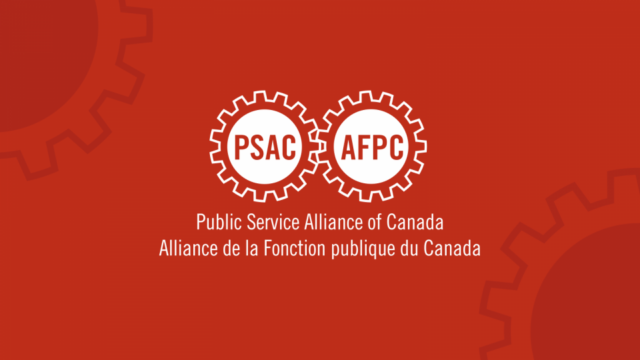FAQ: Your Right to Be Politically Active
PSAC members, like all Canadians, have the right to take part in the democratic process.
By voting, volunteering, or advocating for policies, you help shape the future of our communities and workplaces and strengthen our democracy. Your participation ensures that the needs and concerns of workers and their families are heard, making parliament more representative and responsive.
This FAQ explains how to exercise your political rights while following any necessary guidelines and restrictions, helping you avoid any issues at work.
Why is political participation important?
A healthy democracy depends on citizens being free to take part in choosing who governs and makes decisions for them. This involvement strengthens democracy and makes sure different perspectives are heard.
By getting involved in political activities, we can help shape policies that affect our lives and communities. This also keeps elected officials accountable, reminding them to act in the public’s best interest.
Can PSAC members engage in political activities?
Yes, PSAC members are encouraged to take an active role in exercising their democratic political rights. Examples of permissible activities include:
- Wearing a party or candidate button in public.
- Placing an election sign at your residence.
- Giving political opinions in public or elsewhere.
- Volunteering as a canvasser for a political party or candidate.
- Volunteering in a campaign office.
- Taking time off work to work on an election campaign.
- Participating in the formation of party or candidate policies.
- Taking part in election-day activities on behalf of a party or candidate.
- Attending peaceful demonstrations on political topics.
- Soliciting funds from the public for political campaigns and parties.
- Attending a political convention as a delegate.
- Writing letters to the editor endorsing a candidate or party.
- Running for political office.
What are the guiding principles for political participation?
When exercising your democratic rights, adhere to the following principles:
- Do not conduct any political activity on the job.
- Do not disclose your employment with the federal public sector or your specific employer when participating in campaign activities such as canvassing, making phone calls, or communicating opinions about election issues through social media.
- Do not wear your uniform or government identification at public meetings such as candidates’ meetings.
- Do not use a vehicle that is marked as government-owned or belongs to your employer while participating in election-related activities.
What about PSAC members covered by the Public Service Employment Act?
Canadians have the right to freedom of expression under the Charter of Rights and Freedoms. This includes federal public service workers.
You have the right to take part in political activities during an election as long as it doesn’t impact your ability to do your job without political bias (and is not reasonably perceived as impairing this ability).
Federal public service workers (except for deputy heads) can support or oppose a political party, help with activities for their party or candidate, and even run for office in a federal election.
However, some restrictions apply to PSAC members covered by the Public Service Employment Act, specifically:
- Political activities should not be carried out during your working hours.
- There are guidelines if you wish to be a candidate in a federal, territorial, municipal, or provincial election.
In addition, public service workers, including those who work for the federal government, will need to consider whether public comments they make or political activity they take part in impact their duties of loyalty and impartiality to their employer.
Public comments or political activity may impact these duties when they are critical of the current government or address topics that are relevant to the employee’s job duties with the government.
Different workers will have different limits placed on them based on the nature of their job. In general, workers with higher levels of work responsibilities, higher public visibility in their role, or who do work related to the topics being criticized will be more at risk of breaching, or being perceived to breach, their duties than workers with lower levels of work responsibilities, who do not work in public-facing roles, or who do not do any work connected with the areas being criticized.
Although an employee of the federal or other government may be less likely to violate these duties to their own employer when engaging in provincial political issues, certain objectionable statements or actions not aimed at their employer may nonetheless be considered sufficient for such a violation to take place.
What should I do if I am unsure about a specific political activity?
If you are unsure whether a specific political activity is appropriate, contact your PSAC regional office for guidance.
What if I get in trouble for taking part in political activities?
If you’re disciplined for participating in a political activity, you can file a grievance. Contact your Local or Component for help and inform your PSAC regional office right away.
Are there additional rules for running as a candidate in an election?
Yes, there are separate and special rules if you wish to be a candidate in a federal, territorial, municipal, or provincial election. Ensure you understand and comply with these rules by consulting your PSAC regional office.
Who can I contact for more help?
If you have questions or need more guidance, contact your PSAC regional office. They can explain your rights and responsibilities and offer support if needed.
This article was first posted on the PSAC website.









